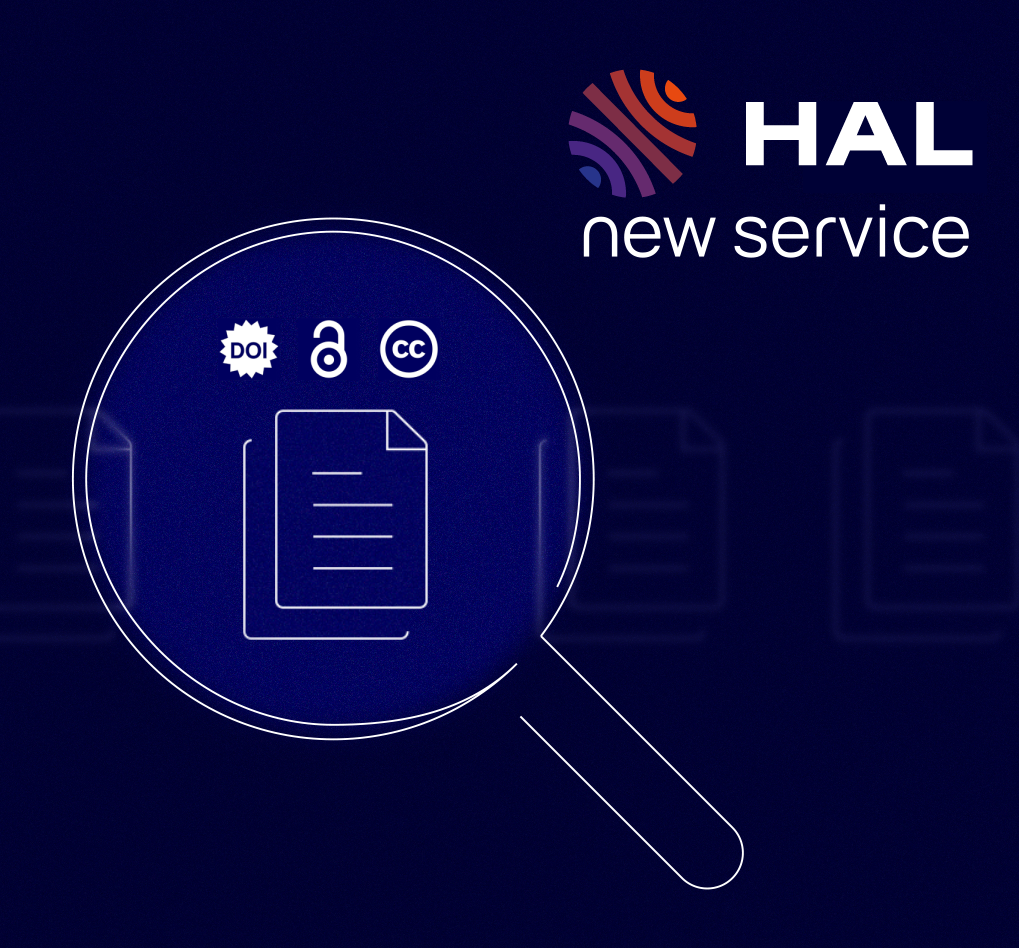Do you have several Open Access publications that you would like to deposit in HAL? A new service is now available to automatically collect and import them. Your publications must be identifiable by a DOI (Digital Object Identifier) and already distributed under a Creative Commons licence.
Make it easier to deposit
The principle of this new service offered to researchers is to suggest files for import into HAL. In fact, based on the DOI, the service identifies their publications already openly accessible on other platforms and proposes them in an interface. If the user accepts the suggestion, the file is automatically imported without further intervention. This feature applies both to adding the fulltext file to an existing bibliographic record in HAL (the metadata of the record is not changed) and to creating a new deposit if the publication is not already referenced. Imported files are reviewed by teams of moderators before they are made available online.
Does HAL make suggestions to you? It’s up to you to test it! If you have a HAL account, simply select the feature in your profile (see documentation).
The suggestion database is updated monthly
Before making suggestions, it is necessary to collect data. HAL relies on a database created by Inist, which implements various processes, from the identification of French publications to the enrichment of metadata (see previous post). The publication’s DOI allows the Unpaywall application to identify whether the full text is open access. (note that Academia and ResearchGate are not included in Unpaywall’s data sources). Finally, to be distributed on HAL, metadata must mention a Creative Commons licence.
The Inist database is updated on a monthly basis. Users are automatically notified of new proposals (see documentation).
This new service is the first deliverable of the Equipex+ HALiance project, of which it is a major component. It is also one of the measures included in the second National Plan for Open Science to facilitate the adoption of the platform by researchers and enable them to comply with deposit incentives or obligations of their institution or funding bodies.
The deposit of publications in a public infrastructure such as HAL, based on common standards and protocols, also contributes to ensuring their open and free access.
